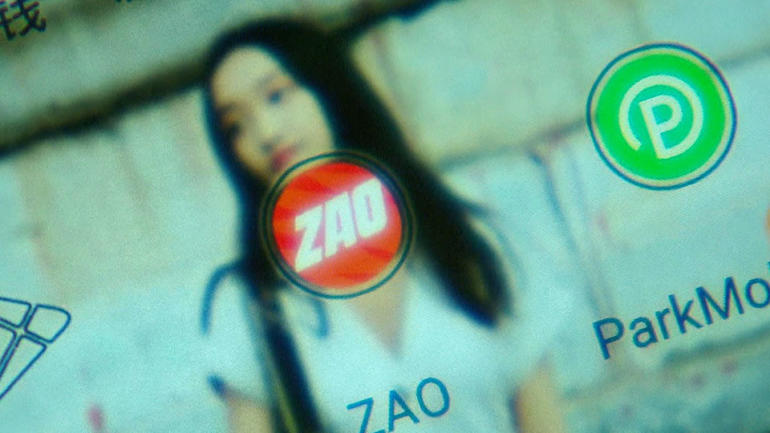A face-swapping app using Artificial Intelligence technology known as ‘deepfake’ is making waves and raising alarm. It’s called Zao. The app surprised the mobile world with its skyrocketing popularity in China, but has also prompted authorities to ask creators to better protect the privacy of users. CGTN’s Gerald Tan explains.
“Zao” – the word means to create in Mandarin. It’s also the name of a Chinese app creating a firestorm.
In just one weekend, it’s gone from launch to being the most downloaded app in China’s IOS store. The secret: allowing users to swap their faces with film or TV characters.
Here’s how it works. I upload a high-resolution photo of myself.
I’m then instructed to take a series of selfies in which I blink, move my mouth and make facial expressions. One-click later, the app digitally grafts my face onto that of the actor in a scene I’ve chosen. Eight seconds is all it takes for me to morph into Forrest Gump.
The ability to see oneself as the star of popular films and TV shows has fueled a frenzy across China. And Zao is being cited as a prime example of how far deepfake technology has advanced.
Deepfake is essentially artificial intelligence that allows one to realistically create images and sound of another human being.
It’s being scrutinized for its ability to create misleading videos that blur the truth. We’ve already seen high-profile individuals from Facebook CEO Mark Zuckerberg to U.S. House Speaker Nancy Pelosi become online targets.
Zao initially required users to sign away complete intellectual property rights to their faces and all content generated. It has since changed that privacy policy in response to widespread backlash. But the app has provided a glimpse into the future of deepfake — how it can be used and possibly abused.
 CGTN America
CGTN America

